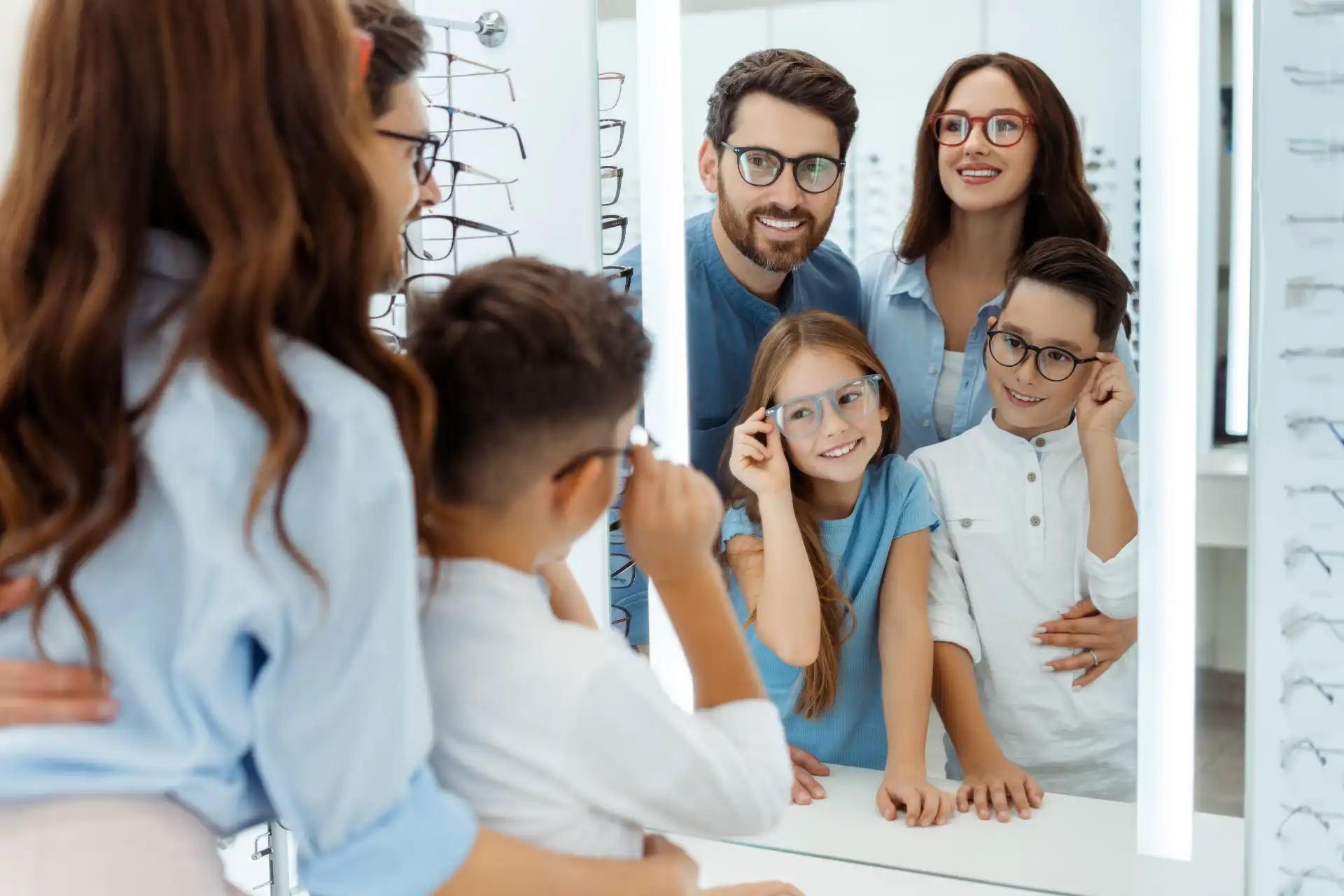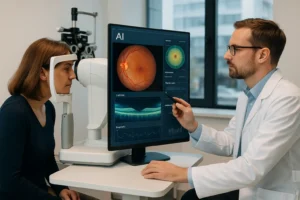Comprehensive Eye Exams: Why They Matter for All Ages
Regular comprehensive eye exams are essential for maintaining good vision and detecting eye conditions early. Many people assume that unless they experience vision problems, they don’t need an eye exam. However, eye health goes beyond just clear vision—many conditions develop without noticeable symptoms.
In this guide, we’ll explore why comprehensive eye exams are important for children, adults, and seniors, and how they help in early disease detection and long-term vision protection.
1. What Are Comprehensive Eye Exams?
A comprehensive eye exam is more than just a simple vision test. It includes a series of tests to assess your vision clarity, eye health, and potential risk factors for eye diseases.
A complete eye exam typically includes:
- Visual acuity test – Measures how clearly you see at different distances.
- Refraction assessment – Determines the need for glasses or contact lenses.
- Eye pressure check – Screens for glaucoma.
- Retinal examination – Checks for signs of eye diseases like diabetic retinopathy.
- Color vision test – Detects color blindness or deficiencies.
📌 Related Resource: American Optometric Association: Eye Exam Guidelines
2. Why Children Need Regular Eye Exams
Children’s vision is crucial for learning and development. Many undiagnosed vision problems can lead to difficulty in school, delayed motor skills, and even behavioral issues.
Signs your child may need an eye exam:
- Squinting or holding objects close to see clearly
- Frequent headaches or eye strain
- Difficulty reading or concentrating in school
A pediatric eye exam ensures early detection of conditions like lazy eye (amblyopia), strabismus (crossed eyes), and myopia (nearsightedness).
📌 Related Resource: Children’s Vision Health: What Parents Need to Know
3. The Importance of Eye Exams for Adults
Even if you have perfect vision, annual comprehensive eye exams help detect early signs of serious conditions like glaucoma, cataracts, and macular degeneration.
Common eye issues in adults include:
- Digital eye strain – Caused by excessive screen time.
- Presbyopia – Age-related farsightedness.
- Dry eye syndrome – Common in people who wear contact lenses.
Adults with diabetes or high blood pressure should have regular diabetic eye exams to check for retinal damage.
📌 Related Resource: Prevent Blindness: Adult Eye Health
4. Why Seniors Should Prioritize Eye Exams
As we age, the risk of age-related eye diseases increases. Seniors are more prone to:
- Glaucoma – Increased eye pressure that can cause blindness if untreated.
- Cataracts – Clouding of the eye lens, leading to blurry vision.
- Age-related macular degeneration (AMD) – Affects central vision, making daily tasks difficult.
Early detection and treatment of these conditions through regular eye exams can help prevent vision loss.
📌 Related Resource: National Eye Institute: Aging and Eye Health
5. How Often Should You Get an Eye Exam?
The frequency of comprehensive eye exams depends on age and health status:
👶 Children: First exam at 6 months, then at age 3, and annually after starting school.
👨💻 Adults (18-60): Every 1-2 years unless experiencing vision problems.
👴 Seniors (60+): Annually, to monitor age-related conditions.
If you have diabetes, high blood pressure, or a family history of eye disease, annual eye exams are recommended.
📌 Related Resource: Eye Exam Recommendations by Age
Final Thoughts
Comprehensive eye exams are essential for people of all ages. They help in early disease detection, vision correction, and maintaining long-term eye health.
Even if you’re not experiencing vision problems, regular check-ups can prevent serious eye conditions and ensure optimal eye function.
To learn more about the importance of eye health, consult a trusted optometrist or visit reputable sources like:
📌 Find an Optometrist Near You: American Optometric Association – Find a Doctor
📌 Eye Health Resources: National Eye Institute





